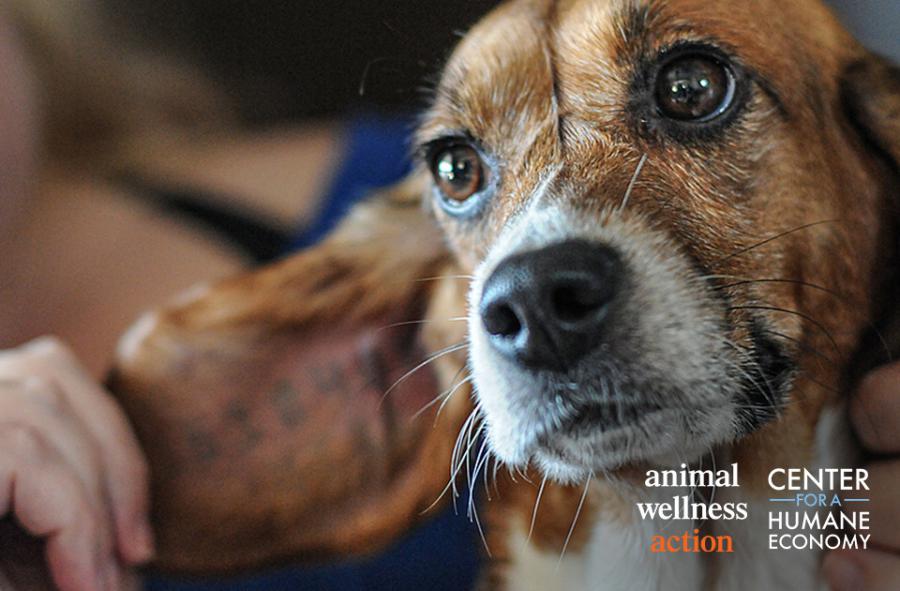
U.S. House Health Committee Highlights FDA Modernization Act 3.0 to Require FDA to Implement Animal Testing Reforms
WASHINGTON, , DC, UNITED STATES, February 29, 2024 /EINPresswire.com/ -- Today, the Center for a Humane Economy, Animal Wellness Action, and the Animal Wellness Foundation thanked leaders of the House Energy and Commerce Committee for hearing testimony on “Legislative Proposals to Support Patients with Rare Diseases”, which included H.R. 7248, the FDA Modernization Act 3.0 (H.R. 7248).
Animal wellness groups submitted testimony for the hearing, further articulating the rationale for H.R 7248 and the urgent need for it at this time. An informative webinar on this issue called the Claudia Miller Ignite Series on Animal Welfare can be heard by clicking here.
H.R. 7248, led by U.S. Reps. Buddy Carter, R-Ga., Nanette Barragán, D-Cal., Diana Harshbarger, R-Tenn., Rosa DeLauro, D-Conn., and Vern Buchanan, R-Fla. will direct the FDA to create a credible qualification program of non-animal testing methods, establishing a vehicle for using these methods in the regulatory process for gaining approval for experimental drugs. FDAMA 3.0 will also require FDA to align their regulations with the new statue under the FDA Modernization Act 2.0 (FDAMA 2.0), which eliminated a Depression-era mandate that all new drugs and vaccines be tested on animals before human clinical trials.
Reps. Carter, Barragán, and Rep. Tony Cardenas, D-Cal., spoke up about FDA’s failures to implement the law and the need to accelerate the qualification and use of non-animal testing methods. The use of animals in drug screening is, by far, the largest category of animal testing.
In December, 2022, President Biden signed the FDA Modernization Act 2.0 into law, after the measure passed the Congress without dissent. That law eliminates a mandate for animal testing of investigational new drugs (INDs) by expanding the definition of “nonclinical test” to include modern 21st century methods or NAMs like cell-based assays, organ chips, organoids, computer modeling, and bioprinting. The goal was both to make drug testing more humane and to speed drug development.
Yet FDA has failed to promulgate rules to conform regulations to the plain language of the statute, causing regulatory confusion and slowing the application of alternatives. The FDA has thus far ignored inquiries from nine U.S. Senators who raised serious concerns and demanded explanations for such inaction through a letter addressed to FDA commissioner. Rulemaking is a critical step in implementing enacted U.S. laws, especially in complex health related matters. In turn, compliance with the law by federal agencies is not optional or discretionary.
“Congress wants safer, more effective drugs and less in the way of inhumane and costly animal testing,” said Wayne Pacelle, president of Animal Wellness Action and the Center for a Humane Economy, which spearheaded the effort to formulate and pass the law ““An astonishing 90-95% of drugs that pass animal tests go on to fail in human clinical trials, wasting precious time for patients and causing harm to millions of beagles, primates, and other animals.”
“To eliminate confusion for drug sponsors, FDA must implement a clear, accountable, and transparent regulatory process, including updating existing regulations to align with the statute. This will lead to more cures, cut drug development time, lower drug prices, and confirm the FDA’s stated commitment to reducing and replacing animals in drug development,” said Tamara Drake, director of research and regulatory policy for the Center for a Humane Economy.
On this rare disease day, the Center for a Humane Economy, Animal Wellness Action, and the Animal Wellness Foundation continue to work tirelessly to bring relief to all patients, especially individuals with rare and neglected diseases through technology-driven innovation.
“Rare and progressive diseases - neglected for far too long - stand to benefit significantly from the adoption of innovative, 21st century approaches like Artificial intelligence (AI), organoids, Organ-on-a-chip and other human-relevant testing methods in drug discovery,” said Dr. Zaher Nahle, Senior Scientific Advisor for Animal Wellness Action and the Center for a Humane Economy.
ABOUT
Animal Wellness Action is a Washington, D.C.-based 501(c)(4) whose mission is to help animals by promoting laws and regulations at federal, state and local levels that forbid cruelty to all animals. The group also works to enforce existing anti-cruelty and wildlife protection laws. Animal Wellness Action believes helping animals helps us all. X: @AWAction_News
The Center for a Humane Economy is a Washington, D.C.-based 501(c)(3) whose mission is to help animals by helping forge a more humane economic order. The Center encourages businesses to honor their social responsibilities in a culture where consumers, investors, and other key stakeholders abhor cruelty and the degradation of the environment and embrace innovation as a means of eliminating both. The Center believes helping animals helps us all. X: @TheHumaneCenter
WAYNE PACELLE
ANIMAL WELLNESS ACTION
+1 202-420-0446
email us here
Visit us on social media:
Facebook
Twitter
Distribution channels: Agriculture, Farming & Forestry Industry, Culture, Society & Lifestyle, Healthcare & Pharmaceuticals Industry, Law, Politics
Legal Disclaimer:
EIN Presswire provides this news content "as is" without warranty of any kind. We do not accept any responsibility or liability for the accuracy, content, images, videos, licenses, completeness, legality, or reliability of the information contained in this article. If you have any complaints or copyright issues related to this article, kindly contact the author above.
Submit your press release
